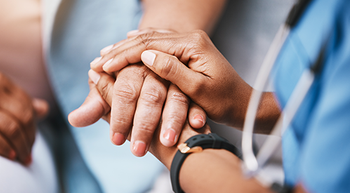
The American Cancer Society estimates that almost 14.5 million cancer survivors are alive in the United States today. By 2024, the number of survivors will grow to almost 19 million.

The American Cancer Society estimates that almost 14.5 million cancer survivors are alive in the United States today. By 2024, the number of survivors will grow to almost 19 million.

What constitutes a “good death” or “successful dying” as it has been called? Clinicians I’ve asked have had to stop and think about this. Most responded by describing the opposite—“bad deaths” or dying scenarios that were distressing to the patient, family, and/or healthcare providers.

Every year, when our editors return from the Oncology Nursing Society (ONS) Congress, they remark on how inspiring and informative this event always proves to be, as thousands of oncology nurses gather to exchange insights and share their research, all with a single purpose in mind: to improve the lives of people coping with cancer and the caregivers who love them.

Health Volunteers Overseas (HVO), an international medical education organization, provides opportunities for oncologists, oncology nurses, and others with oncology expertise to strengthen the care of people with cancer treated at medical centers in low-resource countries.

Change is the one word that describes an immediate result of a cancer diagnosis. A patient’s world can be turned upside down, and they could end up facing obstacles including dietary changes, role changes within their family, and even changes in their activities of daily living.